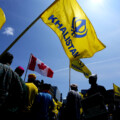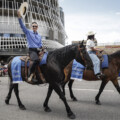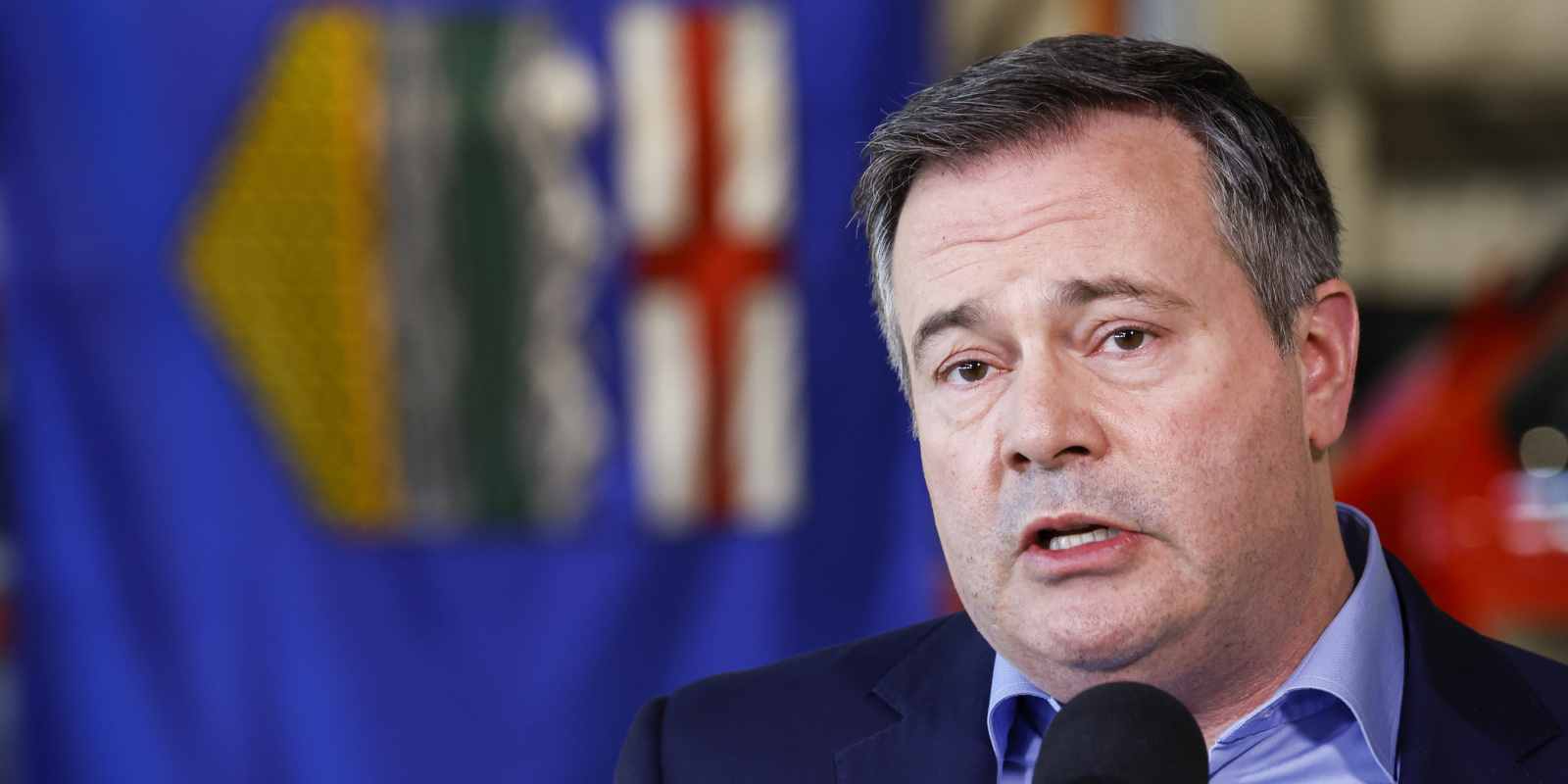The story of the week for Canadian conservatives was Alberta Premier Jason Kenney’s announcement Wednesday that he will resign, sparking an upcoming leadership race in the United Conservative Party.
That could mean that the Conservative Party will be choosing a new leader at the same time as the centre-right party in Canada’s most conservative province. The jury is still out on whether that’s a good thing for the Canadian right.
In this week’s Conservative leadership race roundup, we’ll analyze the lessons from Kenney’s downfall, take a look at how campaign squabbling is showing up in the party’s caucus on Parliament Hill, and dig into Pierre Poilievre’s interview with Jordan Peterson.
Lessons from Kenney’s downfall
Alberta has often been described as the spiritual home of Canadian conservatism and if this week’s events are any indication, the movement is suffering from spiritual disarray.
It’s clear from the results that conservatives are in an oppositional mood right now.
That could explain the massive crowds frontrunner Pierre Poilievre has attracted on the campaign trail, as voters look to vent their grievances about a litany of issues.
It may also be a sign that the energy created by opposition to the pandemic restrictions might outlast the pandemic itself, offering both opportunity and peril for Conservative politicians in Canada.
In his brief speech to supporters on Monday, Kenney admitted that he was surprised by the result of the leadership review, which saw him only pull in 51 percent of the vote. Kenney has a strong reputation for organizational prowess, so it’s a significant victory for his opponents
If it’s true that Kenney’s opponents were primarily fueled by opposition to pandemic restrictions and had significant overlap with “freedom convoy” protesters, as the premier has argued, then it could be a sign that this faction will have an outsized effect on Canadian politics.
Poilievre’s campaign, which has looked to capture some of this energy with a focus on freedom, has dealt with questions about how likely his supporters will be to actually cast a ballot for him when it comes time to vote. The lesson from Kenney’s leadership review could be that it is possible to harness this energy for political purposes.
Although many ex-politicians expressed dismay about Kenney’s downfall, none of the leadership candidates made any public statements of sympathy.
Caucus controversy
Leadership race bickering seeped onto Parliament Hill this week, costing a Conservative critic his place on the opposition front bench.
Asked by reporters about Pierre Poilievre’s vow to fire Bank of Canada governor Tiff Macklem, Conservative finance critic Ed Fast said it is costing the party credibility.
“I’m deeply troubled by suggestions by one of our leadership candidates, that that candidate would be prepared to interfere already at this stage in the independence of our central bank,” Fast said. “Central banks around the world have struggled with the same challenges that our central bank has struggled with.”
Fast, who is a campaign co-chair for Jean Charest, quickly resigned from his critic role after making the comments and interim party leader Candice Bergen confirmed to the press that he was stepping down. It’s a clear sign that the fractious leadership race is leaking into the party’s caucus, with Fast later accusing some of his colleagues of trying to silence him.Ed Fast says Poilievre supporters tried to ‘muzzle’ him on monetary policy https://www.cbc.ca/news/politics/ed-fast-finance-critic-steps-down-1.6458679
Alberta MP Chris Warkentin, a campaign co-chair for Poilievre, disagreed with Fast’s characterization of events.
“What many of us in caucus really objected to was Ed re-enforcing Liberal talking points about inflation to defend his preferred candidate,” Warkentin told the CBC.
The Jordan Peterson interview
The Hub reported on a lengthy interview of Pierre Poilievre by Canadian author and YouTube personality Jordan Peterson, which is another indication that Poilievre plans to avoid mainstream media outlets during his leadership campaign.
Among the topics covered by Poilievre and Peterson were the Emergencies Act, which Poilievre says he will “reexamine,”“To prevent future impositions on civil liberties, Poilievre pledged to reexamine the Emergencies Act: ‘I’m consulting with legal scholars on how we can curtail the power and limit the use of the Emergencies Act in the future. I want to be very careful though in how I do it because this is an incredibly blunt instrument—in times of war or foreign attack or something like that you can understand why there might be an occasion where these powers might be needed—but I do think we need to craft changes to the Act that will prevent it from being abused for political purposes like this again.'” https://thehub.ca/2022-05-18/poilievre-says-vaccine-mandates-are-based-on-political-science-not-medical-science-in-conversation-with-jordan-peterson/ vaccine mandates, defunding the CBC, and the Canadian housing crisis.
The big story in the mainstream media? Poilievre’s use of the term “Anglo-Saxon words,” which CTV reports is a term that “has been used by those on the far-right to differentiate white people from immigrants and people of colour.”Poilievre faces backlash for comments on Jordan Peterson podcast https://www.ctvnews.ca/politics/poilievre-faces-backlash-for-comments-on-jordan-peterson-podcast-1.5910090
Poilievre’s media strategy has prioritized non-traditional ways to reach voters, such as this March 29 video from Tahini Mediterranean Cuisine’s YouTube channel that featured Poilievre smoking shisha and discussing Bitcoin. Peterson’s YouTube page has nearly five million subscribers and his videos average over half a million views.
Recommended for You

‘Not a guide to practical action’: David Frum on 60 years of George Grant’s Lament for a Nation

Ginny Roth and Brian Dijkema: Why Ontario should allow independent schools and unlock true choice in education

Need to Know: Canadian multiculturalism is ‘dangerously adrift’

Falice Chin: A tale of two (Poilievre) ridings



